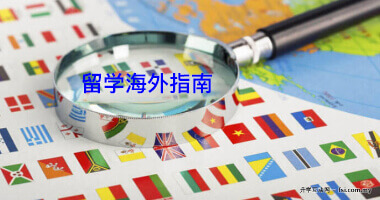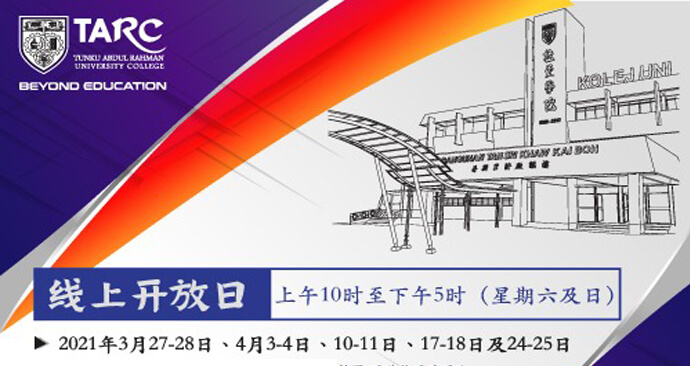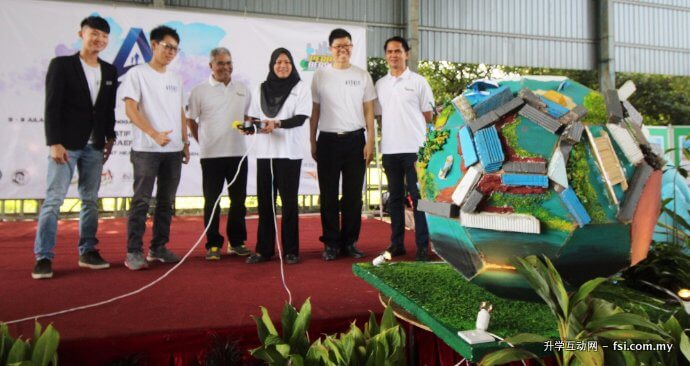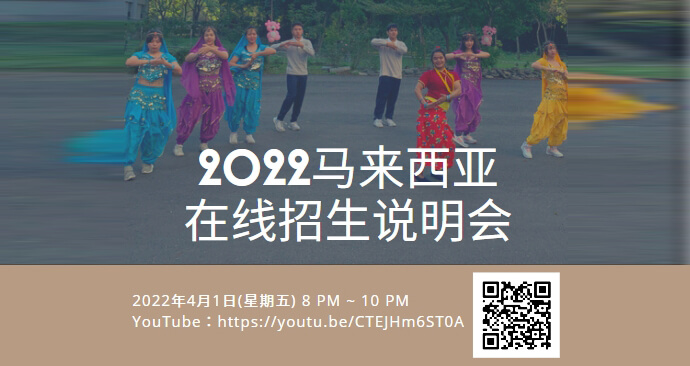Award-winning UTAR Kampar Campus will be the venue for the upcoming Asian Science Camp (ASC) 2017 to be held for the first time in Malaysia from 20 to 26 August 2017.
Held annually at different parts of Asia, the week-long annual camp aims to deepen science, technology, engineering and mathematics (STEM) interests among Asian youths and give them exposure to the importance of STEM via close interaction with prolific STEM experts.
A first in Malaysia, ASC 2017 will see four Nobel Laureates and an array of distinguished scientists and technologists sharing their insights and knowledge with approximately 350 participants from across Asia.
The four Nobel Laureates include Nobel Laureates in Chemistry Prof Lee Yuan-Tseh, who is also the Co-Founder of ASC, and Prof Dr Ada E. Yonath; Nobel Laureate in Physiology or Medicine Prof Sir Richard J. Roberts, and Nobel Laureate in Physics Prof David Jonathan Gross.
Other local and international experts include Science Advisor to the Prime Minister of Malaysia Prof Tan Sri Zakri Abdul Hamid, Academy of Sciences Malaysia Senior Fellow Prof Emeritus Dr Yong Hoi Sen, CEO of Kuala Lumpur Kepong Berhad Tan Sri Dato’ Seri Lee Oi Hian, Founder and Executive Chairman of Top Glove Group of Companies Tan Sri Dr Lim Wee Chai, Founder and Executive Chairman of Silverlake Group of Companies Goh Peng Ooi, Recipient of the 2016 Gruber Neuroscience Prize Prof Poo Mu-Ming, and distinguished Molecular Biologists Prof Suzanne Cory and Prof Jerry McKee Adams.
“This is the first time where we have four Nobel Laureates under the same roof in Malaysia. The public are also welcome to attend the keynote and lecture sessions. The speakers are also effective science communicators, hence making scientific topics interesting and easy to understand,” said UTAR Vice President for R&D and Commercialisation Prof Ir Dr Lee Sze Wei, who is also the ASC 2017 Organising Chairman, in a recent press conference.
ASC 2017 Steering Committee Chairman Datuk Ir Hong Lee Pee concurred and said, “This is also the first time the talks are open to public. This will allow everyone to join in and further widens the reach of people to create a much needed STEM workforce in the future.”
International participation in ASC 2017 is through invitation only. Currently, ASC 2017 is open for upper secondary students from various schools across the country. The selected Malaysian students will then join some of the best international participants to undergo a variety of enriching activities for a week.
“This will enable an exchange of valuable knowledge, as well as cultural interactions and the creation of a network among them,” concluded Prof Lee Sze Wei.
The idea of ASC was co-proposed in September 2005 after the Lindau Science Meeting by Prof Lee Yuan-Tseh from Taiwan and Professor Koshiba Masatoshi, a 2002 Nobel Laureate in Physics from Japan. With the Lindau Science Meeting which has been held in Germany for more than half a century set as a model, ASC invites many Nobel Laureates or world-distinguished scientists as speakers, and devises interesting programmes to attract participants. Taiwan, Indonesia, Japan, India, Korea, Israel, Singapore and Thailand have previously played hosts to ASC since its debut in 2007.
ASC 2017 is hosted by the Kuala Lumpur Engineering Science Fair (KLESF), an initiative promoting interest in STEM among primary and secondary school students, and supported by UTAR, the ASEAN Academy of Engineering and Technology (AAET), Malaysian Industry-Government Group for High Technology (MIGHT) and the Institution of Engineers Malaysia (IEM).
Visit the ASC 2017 website https://www.asc2017.net/ for registration and updates on the keynote and lecture sessions. Registration deadline for the Malaysian participants is 18 June 2017.


Prof Lee Sze Wei (left) and Datuk Hong (right).
Listed as follows are some of the speakers for the ASC 2017:
——————————————————————————————————————————————

Professor Lee Yuan-Tseh
Nobel Laureate in Chemistry, 1986
Prof. Lee Yuan-Tseh is the first Taiwanese Nobel Prize laureate, who, along with the Hungarian-Canadian John C. Polanyi and American Dudley R. Herschbach, won the Nobel Prize in Chemistry in 1986 “for their contributions to the dynamics of chemical elementary processes”. Lee’s particular Physical chemistry work was related to the use of advanced chemical kinetics techniques to investigate and manipulate the behavior of chemical reactions for relative large molecules using crossed molecular beams.
Field: Chemistry
Specialty Areas
• Chemical Reaction Dynamics
• Photochemical Processes
• Spectroscopy and Structure of Ionic Clusters
——————————————————————————————————————————————

Professor Sir Richard J. Roberts
Nobel Laureate in Physiology or Medicine, 1993
Sir Richard John Roberts is the Chief Scientific Officer at New England Biolabs. During 1969-1972, he did postdoctoral research at Harvard University before moving to Cold Spring Harbor Laboratory, where he was hired by James Dewey Watson, a co-discoverer of the structure of DNA and a fellow Nobel laureate. In 1992, he moved to New England Biolabs. The following year, he shared a Nobel Prize with his former colleague at Cold Spring Harbor, Phillip Sharp. Roberts’s discovery of the alternative splicing of genes, in particular, has had a profound impact on the study and applications of molecular biology. The realisation that individual genes could exist as separate, disconnected segments within longer strands of DNA first arose in the study of adenovirus, one of the viruses responsible for causing the common cold. Robert’s research in this field resulted in a fundamental shift in our understanding of genetics, and has led to the discovery of split genes in higher organisms, including human beings.
Field: Genetics, Molecular Biology
Specialty Areas
• Restriction endonucleases
• DNA methylases
• Computational molecular biology
——————————————————————————————————————————————

Professor David Jonathan Gross
Nobel Laureate in Physics, 2004
In 1973, Prof. Gross, working with his first graduate student, Frank Wilczek, at Princeton University, discovered asymptotic freedom, which holds that the closer quarks are to each other, the less the strong interaction (or color charge) is between them; when quarks are in extreme proximity, the nuclear force between them is so weak that they behave almost as free particles. Asymptotic freedom, independently discovered by Politzer, was important for the development of quantum chromodynamics. Gross, with Jeffrey A. Harvey, Emil Martinec, and Ryan Rohm also formulated the theory of the heterotic string. The four were to be whimsically nicknamed the “Princeton String Quartet”. In 2004, Gross was awarded the Nobel Prize in Physics for his discovery of asymptotic freedom, along with Frank Wilczek and David Politzer.
Field: Physics
Specialty Area: String theory
——————————————————————————————————————————————

Professor Dr. Ada E. Yonath
Nobel Laureate in Chemistry, 2009
Prof. Ada E. Yonath, earned a bachelor’s degree in chemistry (1962) and master’s degree in biochemistry (1964) from the Hebrew University of Jerusalem. Professor at the Weizmann Institute of Science. Prof. Yonath received the Nobel Prize in Chemistry (2009) for having described the structure of the ribosome, the body which produces protein in the cell. For most of her scientific career, Prof.Yonath’s research has dealt with the structure of the ribosome, which is composed of protein and nucleic acids, that function to convert the genetic code into proteins, ascertains that the proteins were produced correctly, and defends them. The proteins carry out most of the biological processes in humans, animals, bacteria and plants, and their functions and proper operation are dependent on their spatial structure. Understanding of the way in which the ribosome creates the proteins is likely to shed light on the connection between various defects which are created in proteins and the development of various diseases. The understanding of the spatial structure of the ribosome and the principles of its functioning was made possible thanks to the innovative research approaches developed by Prof. Yonath and is likely, among other things, to assist in improving the efficiency of antibiotic drugs.
Field: Chemistry, Physics
Specialty Area: Cryo bio-crystallography
——————————————————————————————————————————————

Professor Poo Mu-Ming
Recipient of the 2016 Gruber Neuroscience Prize
Prof. Poo is member of National Academy of Sciences of USA. He is a world famous neurobiologist and biophysicist. His research interests focus on cellular and molecular mechanisms underlying axon guidance, synaptogenesis and synaptic plasticity. So far, he has published over 190 papers, among which 45 were published in Nature, Science, Cell and 44 were published in Neuron and other journals published on the behalf by the Nature Publishing Group.
Field: Neuroscience
Specialty Areas: Cellular and molecular mechanisms underlying the plasticity of synapses and neural circuits, and the role of neuroplasticity in brain functions.
——————————————————————————————————————————————

Professor Suzanne Cory
Distinguished Molecular Biologist
Prof. Cory is member of National Academy of Sciences of USA.
She is one of Australia’s most distinguished molecular biologists. Her research has had a major impact in the fields of immunology and cancer. She has had a longstanding interest in promoting excellence in school science education and led the development of GTAC (Gene Technology Access Centre), Victoria’s first specialist science centre, which was established in late 2000 at The University High School. In 2009, it was announced that a new selective entry state high school would be opened bearing her name, which is Suzanne Cory High School that commenced in 2011 in Werribee, Victoria.
Field: Biology
Specialty Area: Immunology and Cancer
——————————————————————————————————————————————

Professor Jerry McKee Adams
Distinguished Molecular Biologist
Prof. Jerry Adams is an Australian-American molecular biologist whose research into the genetics of haemopoietic differentiation and malignancy, led him and his wife, Prof. Suzanne Cory, to be the first two scientists to pioneer gene cloning techniques in Australia, and to successfully clone mammalian genes. His research has led to over 200 scientific publications, collectively cited over 18,000 times, and has been recognised by a number of awards, most notably by his election to the Australian Academy of Science (1986) and the Royal Society (1992).
Field: Biology
Specialty Area: Genetics of haemopoietic differentiation and malignancy
——————————————————————————————————————————————

Professor Tan Sri Zakri Abdul Hamid
Science Advisor to the Prime Minister of Malaysia
Prof. Tan Sri Zakri trained as an agricultural scientist at Malaysia’s College of Agriculture where he received his Diploma. He completed his Bachelor of Science from Louisana State University, USA, and both his Master of Science and PhD from Michigan State University, USA. Among his current appointments include being the Joint Chair for the Malaysian Industry-Government Group for High Technology; and Co-Chair, Secretariat of Malaysia’s Global Science and Innovation Advisory Council. As a prominent global environmental leader, Prof. Tan Sri Zakri is the founding chair of the United Nations Intergovernmental Science-Policy Platform on Biodiversity and Ecosystem Services. He is also a Member of UN Secretary-General’s Scientific Advisory Board and Governing Council of UN Technology Bank for Least Developed Countries.
Field: Science
Specialty Areas: Crop Science, Biodiversity and Science Diplomacy
——————————————————————————————————————————————

Mr Goh Peng Ooi
Founder and Executive Chairman of Silverlake Group of Companies
Mr Goh Peng Ooi is the founder and Executive Chairman of Silverlake Group of Companies, a software organisation founded in 1989 that delivers high-end quality and state-of-the-art solutions to various global industries. He is also Malaysia’s first tech billionaire. An Engineering graduate majoring in Electronics Engineering from the University of Tokyo, Japan, on the Monbusho scholarship, Mr Goh has over 30 years of experience in Information Technology. Under his leadership, today, Silverlake is a multi-billion dollar organisation represented in the Asia Pacific, Middle East, Europe and USA employing over 1,200 people. Mr Goh is still very much involved in the academics of Science and Mathematics despite his professional obligations. Among his academic-related achievements include researches on Science of Intelligence and its application on Human Action and Economy; building the Silverlake group based on the Silverlake Collaborative Intelligence and Innovation Model; and delivering talks in institutions of higher learning.
Field: Technology
Specialty Areas
• Science and Conceptual Mathematics
• Economics, Human Action and Game Theory
——————————————————————————————————————————————

Tan Sri Dato’ Seri Lee Oi Hian
Chief Executive Officer of Kuala Lumpur Kepong Berhad (KLK)
Tan Sri Dato’ Seri Lee Oi Hian is the CEO of Kuala Lumpur Kepong Berhad (KLK), a Malaysian multinational company involved in plantation, manufacturing, retailing and property development locally and internationally. Today, oil palm and rubber plantations still remain as KLK’s core business activity. Tan Sri Lee’s passion for agriculture during his childhood prompted him to pursue a Bachelor’s Degree in Agricultural Science at the University of Malaya, Malaysia, and graduated with First Class Honours. He is also an MBA graduate at the Harvard Business School. On top of his professional commitments, Tan Sri Lee also offers his services in various capacities to the plantations industry such as the Malaysian Palm Oil Council (MPOC), the Malaysia Estate Owners’ Association, the Malaysian Oil Palm Growers Council, the Malaysian Palm Oil Board and the Malaysian Cocoa Board. In recognition of Tan Sri Lee’s significant contributions to the palm oil industry, he was conferred the Honorary Doctor of Science degree by Wawasan Open University and also the Palm Oil Industry Leadership Award 2012 by MPOC.
Field: Agriculture
Specialty Areas: Plantations, Oleochemicals and Property Development
——————————————————————————————————————————————

Professor Emeritus Dr Yong Hoi Sen
Senior Fellow, Academy of Sciences Malaysia
Prof Emeritus Dr Yong Hoi Sen is a Senior Fellow of the Academy of Sciences Malaysia and a prominent genetics and zoology studies specialist. As someone with a passion in biology and life science disciplines, Prof Yong received all his formal education in Malaysia, graduating from the University of Malaya (UM), Malaysia where he specialised in the areas of botany and zoology. He also received his PhD from UM for research in genetics and zoology. To date, Prof. Yong has published over 300 articles and four books on Malaysian flora and fauna. He also established an illustrated quarterly called Nature Malaysiana and was editor of various journals, including the Malayan Nature Journal. Prof. Yong adopts a holistic and innovative approach to solving problems in biosystematics, employing both classical and modern methods.
Field: Biology
Specialty Areas
• Biodiversity
• Systematics, genetics and ecology of fruit flies and other insect pests
• Systematics, genetics and evolutionary biology of stingless bees, braconid parasites and other hymenopterans
• Genetics, immunology and molecular biology of parasites, vectors and hosts
•Systematics, genetics and evolutionary biology of mammals, amphibians, reptiles and fish
• Genetic toxicology
• Animal and human cytogenetics
• Malaysian natural heritage
——————————————————————————————————————————————

Tan Sri Dr Lim Wee Chai
Founder and Executive Chairman of Top Glove Group of Companies
Tan Sri Dr Lim Wee Chai is the Founder and Executive Chairman of Top Glove Group of Companies founded in 1991. Top Glove is the world’s largest rubber glove manufacturer, with operations spanning across Malaysia, Thailand, China, US and Europe. Tan Sri Dr Lim graduated with a Bachelor of Science with Honours in Physics from the University of Malaya, Malaysia, and received his MBA from Sul Ross State University, Texas, USA. Tan Sri Dr Lim also obtained his PhD in Management from the University of Selangor, Malaysia in 2015. In 2016, he was conferred an Honorary Doctorate in Business by the Oklahoma City University, USA, in recognition of his accomplishment as a visionary leader in the Top Glove Group, his continuous improvement in personal education and encouragement for employees to obtain additional education. Tan Sri Dr Lim has been actively involved in many glove industry related associations and organisations in Malaysia. Currently, he also serves as President of the Federation of Malaysian Manufacturers (FMM) and Honorary President of the Malaysia-China Chamber of Commerce. Tan Sri Dr Lim is well-known for his personal motto for success – Work is my Hobby, Exercise is my Duty, Health is my Wealth.
Field: Physics
Specialty Areas: Manufacturing and marketing of natural rubber & nitrile gloves
——————————————————————————————————————————————
拉曼大学 Universiti Tunku Abdul Rahman (UTAR)
http://www.fsi.com.my/会员专区/college-profile/?sponsor_id=168
http://www.fsi.com.my/utar












